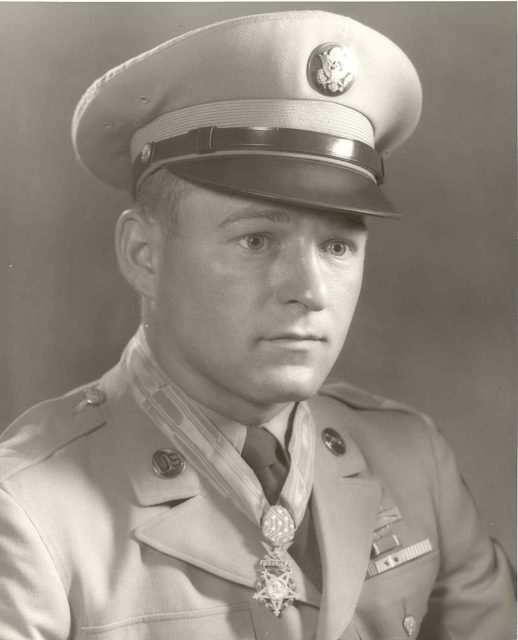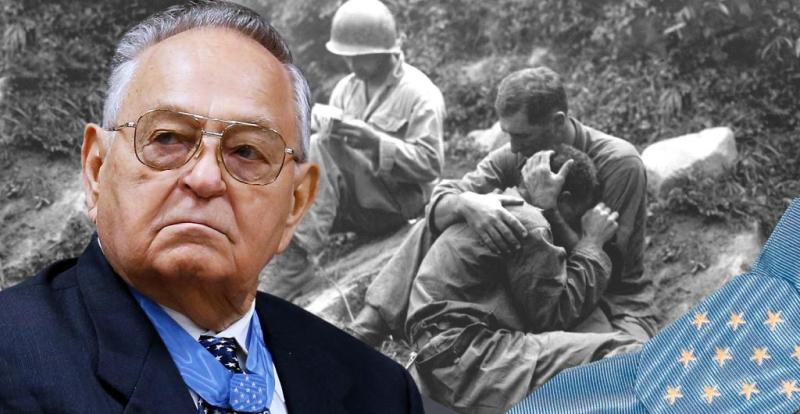Medal of Honor Recipient Ronald Rosser passed away on Wednesday in Bumpus Mills, Tenessee at the age of 90 from issues related to non-Hodgkin’s lymphoma. He was awarded the medal for his bravery during the Korean War.
Rosser was born in Columbus, Ohio, in 1929. His father was a coal miner. When he turned 17, his mother gave birth to twins. He decided there wasn’t enough room for him at home, so he followed his brother into the military in 1946.
He served for three years and was a part of the occupations of Japan and Germany after World War II. When he left the Army, he returned home to work in the coal mines alongside his father.
Rosser’s younger brother, Richard, was killed in action during the Korean War. Rosser re-enlisted out of a sense of vengeance. “…I made up my mind that you can’t kill my brother and get away with it,” he said.
During the war, his platoon was charged with capturing a hill from the Chinese and North Koreans. Rosser led the final assault on the hill when the company commander was injured. His unit 35 soldiers left from the 170 they started the battle with.
Rosser charged up the hill through enemy gunfire with only his M2 carbine and a single grenade. He eventually realized that all his fellow soldiers had been injured, and he was standing alone about two feet from the enemy who were standing in a trench.
With a war whoop, Rosser jumped into the trench and began close-quarters combat with the enemy until he ran out of ammunition.
He headed back down the hill, gathering ammo and grenades from his fallen comrades. Then he went back up the hill. When he ran out of ammunition again, he repeated the process, reaching the summit and throwing grenades into enemy positions until his unit received the command to withdraw.

By his own account, Rosser killed at least 48 enemy soldiers during the fight. Since no one was up the hill to witness his actions, he was only credited with killing “at least 13 of the enemy.”
After the fighting, despite being injured himself, Rosser assisted in the evacuation of soldiers who were more seriously wounded than himself while still facing enemy fire.
For his actions, he received the Congressional Medal of Honor. The citation states that his “courageous and selfless devotion to duty is worthy of emulation by all men.”
He remained in the Army for another 16 years, retiring as a sergeant first class.
He hadn’t intended to leave quite yet, though. Another brother of his, Gary, was killed in action during the Vietnam War. Rosser tried to get assigned to the front lines but was rejected. His commanding officer explained that it would be hard to explain if something happened to him.
In 1999, Rosser donated his Medal of Honor to the Ohio Statehouse in Columbus. He said that the nation gave it to him out of gratitude and he wanted to give it back to them.
Over time his anger faded. As he got older, he said that he remembered the people he saved more than the people he killed.
Another Article From Us: Victoria Cross for “Teddy” 78 Years After Going Down With His Ship
Rosser is survived by his daughter Pamela Rosser Lovell, as well as a number of other relatives. There are currently 68 Medal of Honor recipients still alive today.
